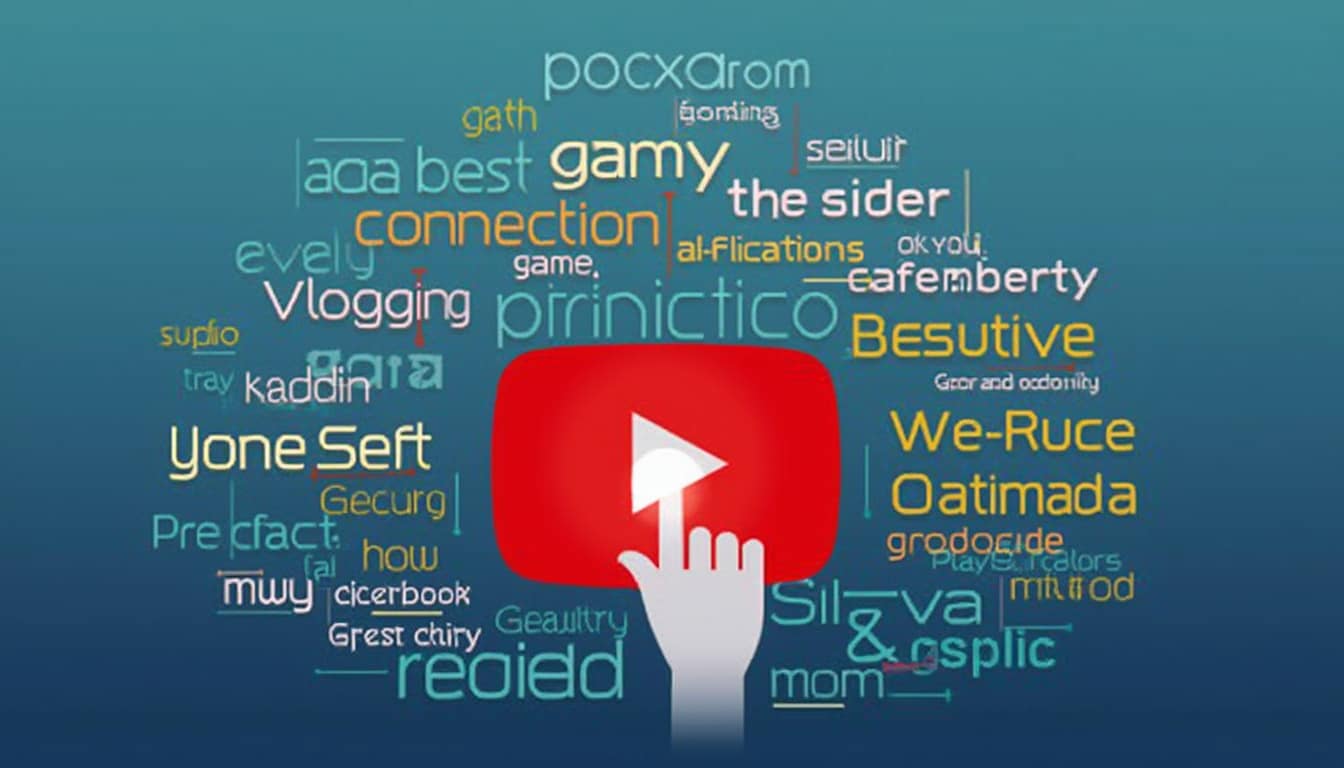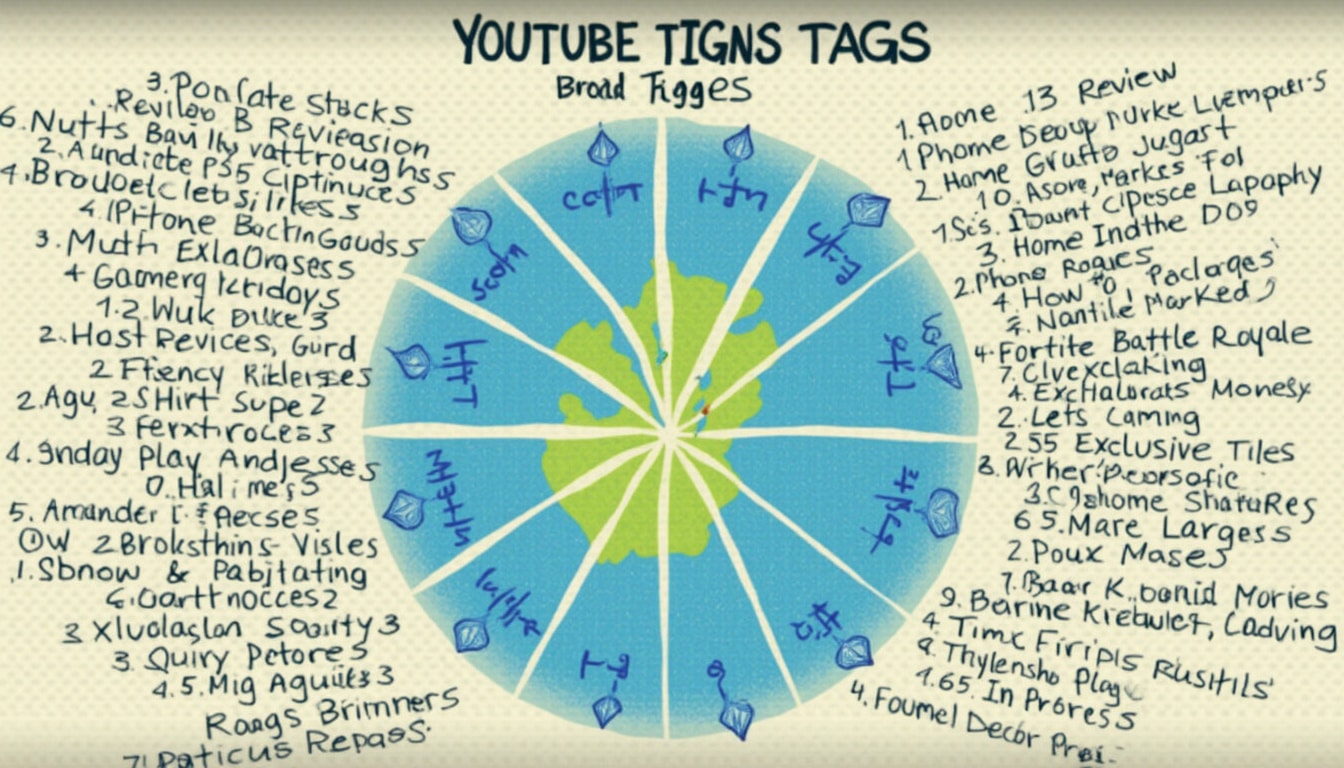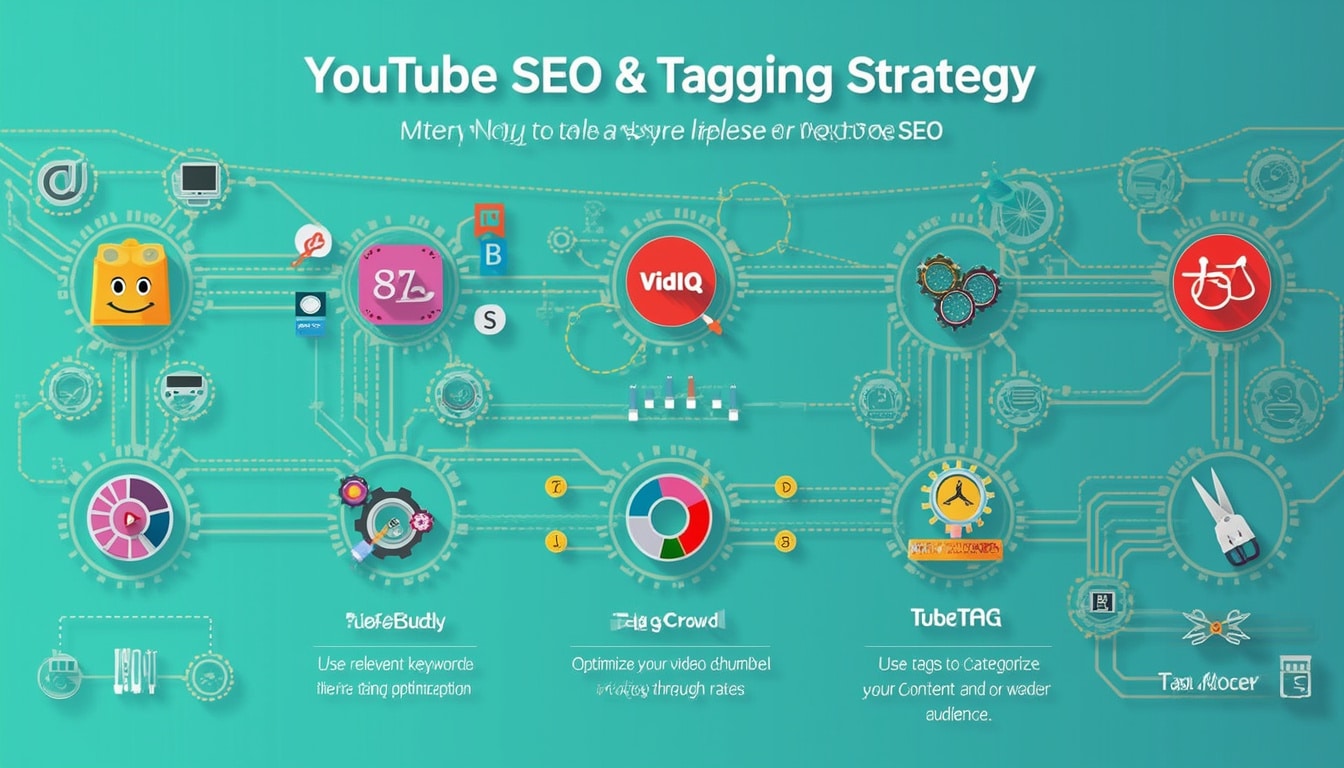YouTube has become one of the most important platforms for content creators worldwide, and understanding how to optimize your videos is key to success. Among various optimization techniques, tags play a significant role in making your videos more discoverable. When used correctly, they not only enhance the video’s visibility but also help YouTube’s algorithm understand your content better. This article delves into the essential functions of tags within YouTube SEO and provides actionable insights for content creators wishing to boost their rankings.
Tags are more than just a way to categorize content; they offer a glimpse into the video’s subject matter, facilitate better search results, and connect with the right audience. For new YouTubers, the plethora of information can feel overwhelming, but by leveraging the right tags, you can streamline your efforts and make a meaningful impact on your reach. Let’s explore this comprehensive guide, focusing not only on the basics but also on advanced strategies for using tags effectively.
Understanding YouTube Tags
YouTube tags are descriptive keywords that you assign to your videos in order to help viewers discover content that matches their interests. While they don’t hold the same level of importance as video titles or descriptions, they are still a relevant piece of the puzzle in YouTube’s SEO ecosystem. Tags are particularly useful for categorizing your content and improving its association with related videos.
Key Points to Remember About Tags:
- They assist YouTube in understanding your video content.
- Tags can enhance searchability for specific keywords.
- They play a role in making your video appear in suggested video lists.
Utilizing the correct tags can significantly enhance the visibility of your video in the crowded YouTube space. Independent studies have suggested a small yet noteworthy correlation between effective tagging practices and improved search rankings on YouTube.

Why Tags Matter in YouTube SEO
Many beginners overlook the importance of tagging their videos, thinking that titles and descriptions are sufficient. However, analyzing how tags contribute to SEO can shed light on their significance:
- Search Engine Optimization: Tags provide additional context to your video. When uploaded alongside your video, they become part of the metadata that search engines utilize. Selecting relevant tags can align your content with what potential viewers are searching for.
- Increased Video Discoverability: Relevant tags improve the chances of your video appearing in search results and suggested video sections. They help build associations between content, leading viewers to your video.
- Viewer Engagement: When videos are correctly tagged, they may be more likely to be suggested alongside videos of similar content, fostering a natural flow of viewership and enhancing viewer engagement on your channel.
Utilizing tags effectively requires insightful keyword research. By understanding what your target audience is searching for, you can create content that resonates with their needs and enhances your channel’s audience.
Best Practices for Tagging YouTube Videos
Just knowing that you should use tags isn’t enough; understanding how to use them effectively is the next crucial step. Here are some best practices to consider:
Start with Relevant Keywords
Your first tag should always be your primary keyword or the exact phrase you want to rank for. It sends a clear signal to YouTube about what the video content is primarily focused on. For instance, if your video is about creating healthy smoothie recipes, your first tag might be “healthy smoothie recipe.”
Include a Mix of Tags
Do not limit yourself to only specific tags; broaden your scope. Include a combination of both focused tags that represent your video content as well as broader tags that help categorize your video. This dual approach can improve search visibility.
Avoid Overloading with Tags
Stuffing your video with too many tags can confuse the YouTube algorithm. It is advisable to stick to around 5-8 well-researched and relevant tags that provide clear descriptive insight into your video.
Utilize Long-Tail Keywords
Incorporating long-tail keywords not only encapsulates what your video is about but also caters to specific searches that audiences are making. Instead of just using ‘smoothies,’ use ‘healthy blueberry smoothie recipe.’ This enhances your chances for targeted discovery.

Consistency is Key
Maintaining a consistent tagging strategy will also enable your audience to relate your content better. Just like in website SEO, having a unique set of tags associated with your channel can help establish a brand identity. It allows YouTube to categorize your videos accurately, improving your overall channel performance.
Research Competitor Tags
One effective technique is to analyze the tags your competitors are using. Tools like VidIQ and TubeBuddy can help you understand what tags are working for others in your niche. By analyzing their success, you can adapt your strategy accordingly.
Tools to Optimize Your YouTube Tags
Several tools can assist you in developing a strong tagging strategy. Leveraging technology can save you time and improve your effectiveness. Here are a few notable recommendations:
Google Trends
This platform allows you to analyze keyword popularity over time, helping you adjust your tagging strategy based on current interests and trends.
TubeBuddy
TubeBuddy offers a robust set of tools designed to help boost your channel’s performance. The tag explorer feature can help find related tags that align with your content’s focus.
VidIQ
VidIQ is another excellent tool for tag generation. It provides insight into what tags are currently trending within your niche, allowing you to adopt high-performing tags in your content.
Always Monitor Your Performance
It’s essential to revisit your tagging strategy regularly. Keep an eye on analytics to see how your tags are performing. This ongoing analysis can provide insights into what’s working and what adjustments you need to make.
By harnessing these tools, you can enhance how audiences discover your video, optimizing your approach accordingly.

Monitoring Tags Performance
After implementing your tagging strategy, it’s crucial not to take a hands-off approach. Monitoring how your tags perform relative to your videos is important for identifying areas of improvement:
Check YouTube Analytics
YouTube offers robust analytics where you can see how well your videos are being discovered through search. This information can give you insights into which tags are attracting viewers and which are not making an impact.
Adapt Based on Viewer Engagement
If you notice that viewers are clicking on your video but not watching it through to completion, you may want to rethink your tags to ensure they align better with the content.
Experiment with New Tags
Feel free to try different tags over time. The YouTube landscape is constantly evolving and viewer interests shift. Regularly updating your tags can capture new audiences seeking fresh content.
As you continuously refine your approach to tagging, you position yourself for greater success on the platform.
The effective use of tags is a pivotal aspect of YouTube SEO. Tags serve not only to categorize your videos but also to increase visibility, improve discoverability, and engage your audience. By understanding the role of tags and applying best practices, you can enhance your content’s reach exponentially.
Regularly researching, monitoring, and adapting your tagging strategy can distinguish between a good video and a great one in attracting viewers. Focus on quality rather than quantity, and your videos will benefit in the long run. Remember to utilize available tools to help streamline this process while keeping your audience’s interests in mind.
